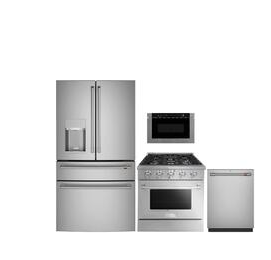How to tell if a refrigerator compressor is not working

The refrigerator's compressor evacuates the heat from inside the appliance through a complex system of evaporator coils. The evaporator coils absorb heat, making the air cooler as it flows into the refrigerator. When a compressor fails, the temperature inside the refrigerator slowly rises until the food is no longer cold. Compressor failure is not always a reason to buy a new refrigerator. Sometimes the compressor can be replaced for a minimal cost.
Step 1
Open the refrigerator and feel the air inside. If the refrigerator is hot, it is a sign that the compressor may be failing. Look at the refrigerator's internal thermostat if it has one, and if it reads higher than normal, the compressor may be failing.
Step 2
Listen if the refrigerator fan motor starts. The sound of a refrigerator running does not necessarily indicate that the compressor is running. However, if the fan starts to run more often than normal or doesn't come on at all, the refrigerator's compressor may fail.
Step 3
Examine the sepentines in the back of the refrigerator to check for frost. Although frost can appear in normal home temperatures, its constant presence indicates that the compressor is not working properly.
Why Does A Refrigerator Compressor Quit Working?

Sometimes, the refrigerator compressor stops working for no apparent reason. However, some factors can cause a compressor to stop working.
One of the reasons a fridge compressor stops working is the fan blades. These blades are connected to the compressor by a belt, and they can get worn down over time. This will cause the compressor to stop working as well.
Another reason a refrigerator compressor might stop working is an air leak in the system. This is usually caused by a loose connection, which can be fixed with some simple maintenance work.
Is It Worth Replacing A Refrigerator Compressor?

A refrigerator compressor is a small, but important part of your refrigerator. It is responsible for cooling the interior of your fridge via a fan that draws air in and pushes it out. It helps to keep the temperature inside your fridge at a constant level, preventing food from spoiling and keeping your food fresh.
If you are considering replacing your old compressor with a new one, it's important to understand what you're getting into before you make any decisions. Replacing the compressor can be an expensive decision if you don't know what kind of warranty is included with the new one or if there are any hidden costs involved in replacing the old one.










